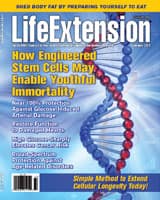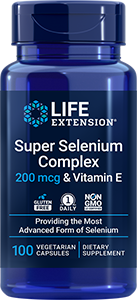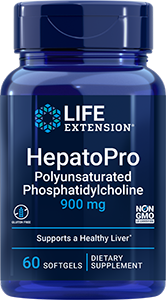Meta-analysis concludes beneficial effect for vitamin and mineral supplementation on mood
Tuesday, February 5, 2013. People who consume vitamin and mineral supplements appear to be in a better mood than supplement nonusers according to the results of a meta-analysis published online on January 29, 2013 in Psychosomatic Medicine: Journal of Biobehavioral Medicine.
Sara-Jayne Long, BSc and David Benton, DSc of the University of Swansea in Wales analyzed eight double-blinded, placebo-controlled trials that evaluated the effects of multivitamin and mineral supplements on aspects of mood in a total of 1,292 healthy men and women. The supplements contained varying levels of vitamins and minerals, and were administered for at least 28 days. Stress, mild psychiatric symptoms, anxiety, depression, elation, perceived energy levels, confusion, and agreeableness versus hostility were among the aspects of mood evaluated in the trials before and after treatment.
When the research duo looked at trials that examined stress, supplemented subjects had a 65 percent lower risk of perceived stress compared to those that received a placebo. The analysis uncovered a 70 percent lower risk of mild psychiatric symptoms, a 68 percent lower risk of anxiety, a 73 percent reduction in experiencing fatigue and a 77.25 percent lower risk of confusion among supplemented participants. Happiness and decreased hostility levels were also likelier among supplement users in analyses of studies that analyzed these factors. Supplements that contained high doses of B vitamins tended to elicit greater benefits than those that had lower amounts.
"It is difficult to avoid the conclusion that the diets of the samples in the studies evaluated did not provide optimal nutrition," the authors write. "The fact that there was a greater response to the supplements that offered doses higher than those suggested by RDAs calls into question whether RDAs or dietary reference values (DRVs) provide intakes that adequately meet the needs of the brain. The present findings also call into question the existing wisdom that, in industrialized societies, the consumption of diets containing sufficient energy and protein will naturally provide sufficient levels of micronutrients."
"Multivitamin/mineral supplementation has a beneficial effect on many aspects of mood and mild psychiatric symptoms in healthy populations," they conclude. "The possibility that micronutrients may be beneficial in clinical populations warrants further investigation." |
 |
 |
|
An article published on July 11, 2012 in the journal PLoS ONE (Public Library of Science One) reveals an association between chronic phobic anxiety and shorter telomere length in women. Telomeres are DNA-protein complexes that protect the ends of the cells' chromosomes. Telomeres shorten with cell division, and not only reflect aging of individual cells, but have been associated with an increased risk of heart disease, stress and other conditions.
The research included 5,243 women aged 42 to 69 who participated in the Nurses' Health Study or other studies that obtained information on the presence of phobic anxiety. Relative telomere length was measured in DNA extracted from white blood cells.
Women who reported the highest amount of phobic anxiety were less likely to use daily multivitamins and more likely to have used benzodiazepine drugs. Having a higher level of anxiety was linked with a significant reduction in telomere length in comparison with women who reported less anxiety. The difference in length experienced by the most anxious women was equivalent to being six years older than those who reported the least anxiety.
"Many people wonder about whether—and how—stress can make us age faster," commented lead author Olivia Okereke, MD, MS, who is affiliated with Brigham and Women's Hospital and Harvard Medical School's Departments of Medicine and Psychiatry. "So, this study is notable for showing a connection between a common form of psychological stress—phobic anxiety—and a plausible mechanism for premature aging. However, this type of study design cannot prove cause-and-effect or which problem came first—the anxiety or shorter telomeres." |

- On the cover:
- Reports:
- Departments:
- Journal abstracts:
|
|

|
 |
|
Selenium is a trace mineral that is essential to optimal health. Few people—including physicians—realize that selenium is available in several different forms. Each form of selenium acts along a different pathway to support healthy cell division. For optimized selenium support, one should supplement with the following forms of selenium:
- Sodium selenite
- L-selenomethionine
- Selenium-methyl L-selenocysteine
Life Extension® has upgraded Super Selenium Complex with a new selenium blend that combines all three of these unique forms of selenium. A small amount of vitamin E is included because it has been shown to work synergistically with selenium. |
|
 |
|
Endogenous phospholipid is an integral part of all cell membranes and essential for their structural and functional integrity. The chemical structure of an extract from soybeans called PPC (polyenylphosphatidylcholine) corresponds to that of endogenous phospholipid and integrates in the cell membrane, becoming the cell's constitutive element. PPC possesses functional superiority because of its content of unsaturated fatty acids. PPC has antioxidant, cytoprotective, and fluid-regulating effects and has been shown to enhance cell membrane function throughout the body.
It is believed that PPC's beneficial effect is based on its ability to be incorporated into liver cell membranes to help restore its structure and the functioning of corresponding enzymes. This results in an increase in membrane fluidity and transport activity across the membrane.
PPC is also incorporated into blood lipoproteins, helping to extend its benefits beyond the liver to promote arterial health. |
|
|



